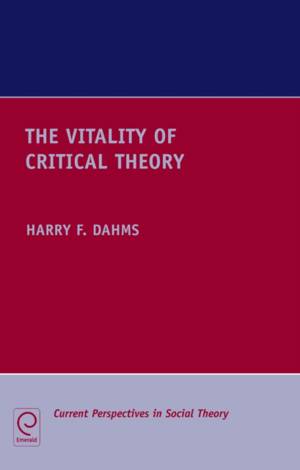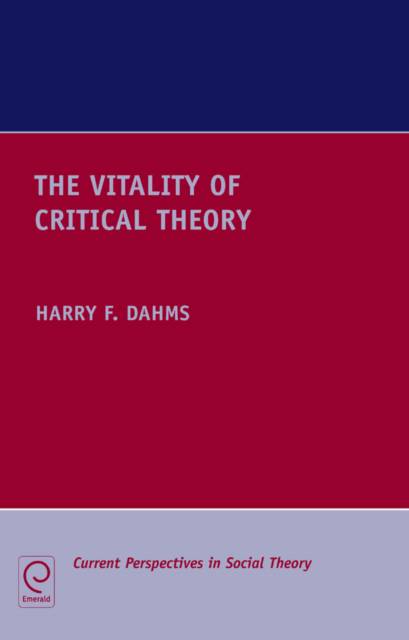
- Afhalen na 1 uur in een winkel met voorraad
- Gratis thuislevering in België vanaf € 30
- Ruim aanbod met 7 miljoen producten
- Afhalen na 1 uur in een winkel met voorraad
- Gratis thuislevering in België vanaf € 30
- Ruim aanbod met 7 miljoen producten
Zoeken
Omschrijving
The common theme of this volume is that the critical theory of the Frankfurt School is as important today, if not more so, as it was at its inception during the 1930s. It looks at the distinguishing features of this tradition and how it is critical, yet also complementary, of other approaches in the social sciences, especially in sociology. The vanishing point of critical theory is not the replacement of diverse endeavors to illuminate the nature of modern society, rather, its purpose is to bundle overly fragmented perspectives that have been developed in theoretical sociology. It includes essays that address: the problematic analysis of political economy at the center of the early Frankfurt School, and the subsequent neglect of political economy; the continuing importance of alienation and reification as focal points of critical theory; differences in modes of critical theorizing during the twentieth century (with special emphases on Lukacs, Adorno, Habermas, and Postone); globalization as an analytical and normative challenge critical theorists are uniquely positioned to confront; and, the most problematic feature mainstream approaches in the social sciences have in common.
Specificaties
Betrokkenen
- Auteur(s):
- Uitgeverij:
Inhoud
- Aantal bladzijden:
- 352
- Taal:
- Engels
- Reeks:
- Reeksnummer:
- nr. 28
Eigenschappen
- Productcode (EAN):
- 9780857247971
- Verschijningsdatum:
- 19/05/2011
- Uitvoering:
- Hardcover
- Formaat:
- Ongenaaid / garenloos gebonden
- Afmetingen:
- 150 mm x 231 mm
- Gewicht:
- 680 g

Alleen bij Standaard Boekhandel
+ 605 punten op je klantenkaart van Standaard Boekhandel
Beoordelingen
We publiceren alleen reviews die voldoen aan de voorwaarden voor reviews. Bekijk onze voorwaarden voor reviews.











